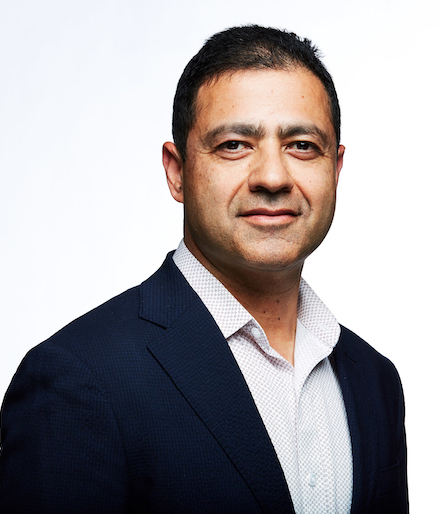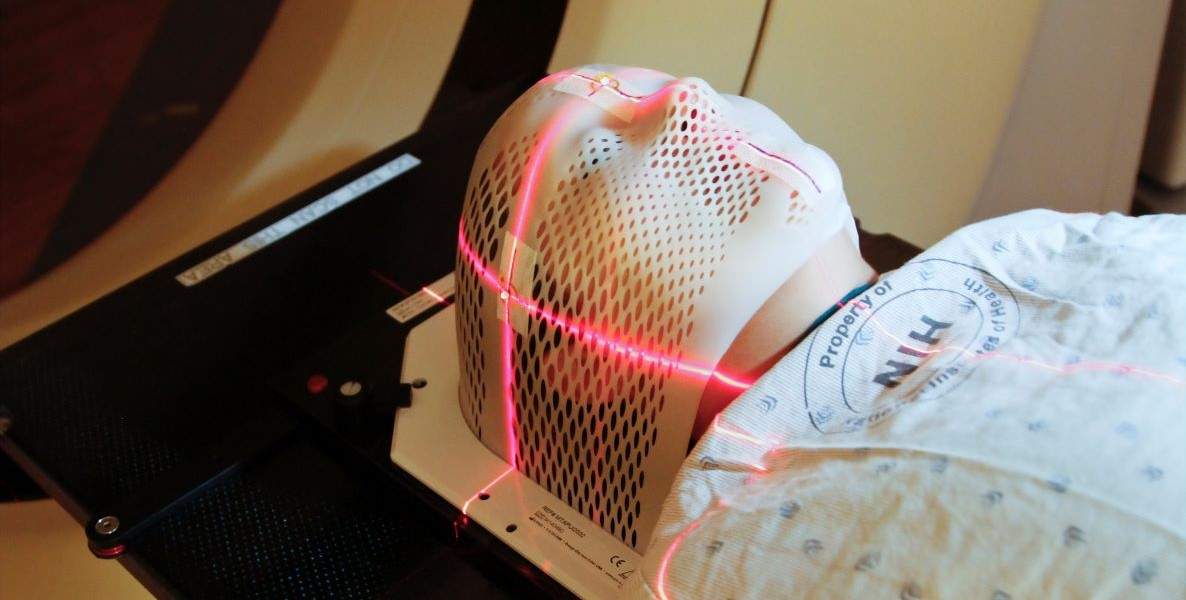Back in 2016, serial medical tech entrepreneur Zikria Syed began hearing a similar refrain from his clients who did medical and pharmaceutical research: They were struggling to find patients to participate in clinical trials.
Clinical trials are a critical part of the medical research process. They are needed to develop new drugs, discover novel ways of detecting and preventing diseases and create new medical devices. Everything from vaccines to medical equipment to new ways of doing surgery goes through a clinical trial.
But, University of Pennsylvania researchers found in a 2020 study, 86 percent of trials fail to meet their recruitment goals, which causes months of delays, or even winds up terminating the trial. That means a potential treatment for a disease or ailment may never get to market.
“Patient recruitment and finding patients to participate in clinical trials is the number-one challenge the industry faces,” Syed says. “After we kept hearing that for a while, we said, oh, maybe this is the problem that we should be focusing on.”
The study’s authors note that concerns about risks of the trials, travel difficulties and a lack of time are all reasons why it’s hard to find participants. But perhaps the biggest issue researchers had recruiting patients had to do not with logistics, but awareness. Patients just didn’t know there were trials for which they might be eligible.
Syed, who had started a number of businesses that provided software solutions for clinical trials, was frustrated. He’d seen the good work trials could do — saving and improving the quality of people’s lives. If they knew the advantages of trials, he thought, people would sign up.
“Of course, there are some risks associated, but they may benefit from these new drugs that are not generally available in the market,” Syed says.
“We heard frequently from customers that patient recruitment and finding patients to participate in clinical trials is the number-one challenge the industry faces. After we kept hearing that for a while, we said, oh, maybe this is the problem that we should be focusing on.”
And focus on it, he did. His latest venture, PatientWing, recruits and matches patients with rare diseases and cancers with clinical trials. Since its launch, the business has grown rapidly, earning a spot on Inc. 5000’s list of fastest-growing Philadelphia businesses last year. Now, Syed is doubling down on PatientWing’s mission by shifting the focus to rare diseases and educating people about these conditions through the company’s website.
From VitalTrax to PatientWing
Syed launched PatientWing in 2017 as a component of his company, VitalTrax, a software solution that specialized in streamlining the clinical trials process by offering electronic reporting and almost real-time analytics.
Syed, whose educational background is in computer science, says he has always been driven by a desire to help patients and bring drugs to market faster. He launched his first company, West Chester-based Broadpeak, a collaborative clinical trial software, in 2004.
In 2006, he founded his second company, the Conshohocken-based NextDocs, which provided technology solutions to life sciences companies by automating processes that help drugs achieve FDA compliance. After NextDocs was acquired by Aurea in 2015, he shifted his focus to launching VitalTrax in 2016.
At first, PatientWing was simply a virtual network that connected patients with researchers who were conducting trials. Trial sponsors could promote trials on the site and patients could share their information with researchers to see if they qualified. Syed used to describe it as “the OpenTable of clinical trials.”

While the virtual network approach offered researchers a vehicle for reaching patients, it was imperfect. Clients needed to know PatientWing existed to search for trials. Syed felt many were missing out on treatments with major benefits.
So, he pivoted. PatientWing began actively recruiting patients. Using grassroots methods, PatientWing’s recruiters joined Facebook groups, Reddit forums and other online communities and actively reached out to potential participants. They purchased advertisements and began a blog on their site that shared information about trials and conditions that could benefit from them. Researchers and pharmaceutical companies would pay PatientWing a fee for these services, allowing them to shift the burden of recruitment on to another entity.
A year after its launch, the company received a $150,000 investment from Ben Franklin Technology Partners. Five years after VitalTrax first launched in 2016, PatientWing became the main focus of the business. Though Syed can’t share exactly how many patients and trials the company has worked with, he did say PatientWing has now recruited patients for trials focused on dozens of diseases and cancers in more than 30 countries.
“We felt that this is what the market is missing,” Dr. Sri Sriadibhatla, investment director for the Healthcare Investment Group at Ben Franklin, says. “[Zikria] is very good at identifying problems given his IT background, and coming up with the solutions to overcome these issues.”
Raising awareness of rare diseases
PatientWing began as a resource for all clinical trials, but as the company worked to recruit patients Syed noticed that recruitment issues were especially acute for researchers conducting trials on rare diseases.
Defined as conditions that affect 200,000 or fewer people in the U.S., rare diseases are difficult to conduct clinical trials for because researchers often can’t find enough people in a particular area to participate in the trial. Since so little research is conducted on rare diseases, there are few treatments available to patients. Clinical trials are some of the only resources people with these conditions have to seek treatment.
“Finding those patients and educating them, informing them about this specific research opportunity is a challenge,” he says. “If the clinical trial is running in Philadelphia, there may be just a handful of patients who are available within 50 or 100 miles.”
So, Syed decided to pivot, again. A few years after launching PatientWing, the company shifted its focus to helping boost clinical trials focused on rare diseases recruit participants. They began publishing articles on a number of rare diseases, from ulcerative colitis to myelodysplastic syndromes. These pieces connect people with these diseases with available research, support resources and treatments.
“With rare diseases, oftentimes, there’s no treatment. There’s currently no treatment on the market available,” Syed says. “These patients are highly engaged and benefit right upfront by participating in the trial, or hopefully they’ll benefit later when the drug goes to market.”
This year, the company started working with patients to tell their stories on the site’s blog. Syed hopes these features will help draw attention to these diseases, spurring future research and helping connect patients with more clinical trials.
“With rare diseases, oftentimes, there’s no treatment. There’s currently no treatment on the market available,” Syed says. “These patients are highly engaged and benefit right upfront by participating in the trial, or hopefully they’ll benefit later when the drug goes to market.”
Michelle Wilson is a patient who has worked with the company on one of their patient story features. Shortly after becoming a mother for the first time in 2020, Wilson was diagnosed with Myelodysplastic Syndrome, a cancer that causes a person’s bone marrow to fail to produce enough healthy blood cells. Wilson underwent chemotherapy treatment and received a bone marrow transplant from her brother. Though she’s been declared cancer free, she developed chronic graft versus host disease, a condition where the donor bone marrow cells attack her body.
PatientWing discovered Wilson’s story through her Instagram account and blog, Whirlwind and Wonder, where she documents her medical journey. She was eager to collaborate with the company and they’ve since remained in touch, referring her to potential clinical trials.
“[PatientWing is] definitely an important little pocket that’s missing [in the clinical trials space],” Wilson says. “They’re connecting patients with different studies and research and that’s what we need.”
Syed would not share revenue figures, but he did say the company has been profitable for the last few years and has grown to 30 total employees. He anticipates the company will continue to grow and they’re already planning to expand their awareness-building campaigns to include Lupus and Multiple Sclerosis later this year.
Syed’s goals for the business go beyond profits, too. He wants the company to do good, for the patients it connects to clinical trials and for the broader community in Philadelphia. Last year, the business took the 1 percent pledge and now donates one percent of its profits and time to local and international nonprofit organizations. The team has prepared and served meals at Broad Street Ministry, volunteered with Philabundance and more.
“We want to make the optimum impact in the community and the world around us. I think that aligns well with the mission of the company,” Syed says. “Giving back should be a big part of what we do.”

MORE HEALTHCARE SOLUTIONS IN THE CITIZEN
Photo by Castorly Stock.




